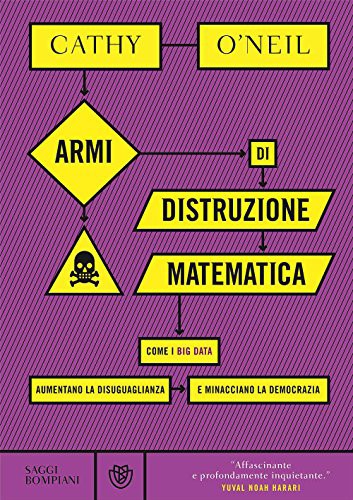Aaron ha recensito Weapons of Math Destruction di Cathy O'Neil
Weapons of Math Destruction
5 stelle
O'Neil is an excellent guide to the world of algorithms and how they impact our lives in ways large and small. To me one of the most depressing lessons of the book was that the people creating these systems which analyze data have almost no interest in the knock-on effects that their work has on people's lives. They are so focused on whatever particular goal they have that they have total blinders as to the damaging effects that their work might have. As with any book about technology the companies have changed a bit since O'Neil wrote the book, but the underlying problems have not changed; thus this continues to be a worthy guide to the challenges that our society will face as we continue to be enmeshed in algorithms which may not have our best interests at heart.




